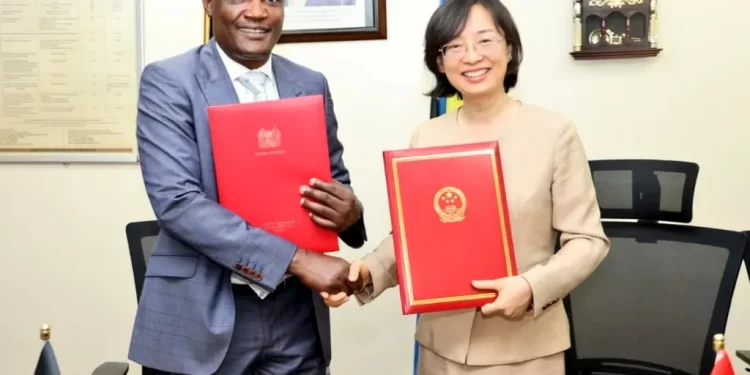Kenya’s healthcare sector has received a significant boost with a Ksh 1.8 billion grant from China to upgrade key hospitals across the country. This development comes at a crucial time when the sector has been grappling with financial shortfalls following reduced USAID funding and less-than-optimal contributions to the Social Health Insurance Fund (SHIF). The grant represents a major stride in Kenya’s ongoing pursuit of Universal Health Coverage (UHC) and the enhancement of medical services for millions of citizens.
Strengthening Healthcare Infrastructure
The funds will be channeled toward upgrading several critical hospitals, including Londiani Referral Hospital, Baringo County Referral Hospital, Kilifi Hospital, Misikhu Hospital, Bildad Kagia Hospital, and Kaimosi Farmers Training College. These facilities serve as vital healthcare nodes in both urban and rural areas, ensuring that quality medical care reaches all segments of the population. The improvements will modernize infrastructure, introduce state-of-the-art medical equipment, and enhance service delivery, directly benefiting underserved communities.
The funding will lead to immediate enhancements in hospital capacity, reducing congestion and improving response times for emergency cases. With upgraded diagnostic and treatment facilities, patients will experience shorter waiting times, better medical outcomes, and improved healthcare accessibility.
In the long term, these upgrades will play a pivotal role in strengthening Kenya’s healthcare system. Modernized hospitals will not only improve patient care but also attract and retain skilled healthcare professionals. Additionally, better healthcare infrastructure will reduce the burden on referral hospitals, enabling a more decentralized and efficient healthcare system. Over time, this will contribute to economic growth by improving workforce productivity and reducing public health expenditures on preventable diseases.
Enhancing Kenya-China Relations
Beyond healthcare, this grant underscores Kenya’s strong bilateral relations with China. Over the years, China has played a key role in Kenya’s infrastructure development, from transport systems to energy projects. By extending support to the healthcare sector, China demonstrates a commitment to holistic development, ensuring that economic growth is accompanied by social progress.
Complementing Taifa Care and SHIF Initiatives
The timing of this investment aligns with Kenya’s healthcare reform efforts under Taifa Care and SHIF. With over 20.6 million Kenyans already enrolled in Taifa Care, the modernization of hospitals will ensure that beneficiaries receive high-quality treatment in well-equipped facilities. Moreover, the integration of advanced medical technologies will enhance service delivery, complementing SHIF’s goals of universal healthcare access and financial sustainability.
A Transformative Step Toward UHC
The Ksh 1.8 billion grant is a testament to Kenya’s commitment to strengthening its healthcare system. By modernizing key hospitals, the government is addressing longstanding challenges in service delivery, improving patient care, and laying the groundwork for sustainable healthcare reforms. With continued investments and strategic partnerships, Kenya moves closer to achieving Universal Health Coverage, ensuring that quality healthcare is accessible to all, regardless of economic status or geographic location.
This initiative is not just an infrastructure upgrade—it is a transformational step toward a healthier, more resilient Kenya. As these hospitals receive their much-needed improvements, millions of Kenyans will benefit, reinforcing public confidence in the nation’s healthcare system and securing a stronger future for generations to come.
Dr. Omollo: Leather Park to Create Over 100,000 Jobs, Cementing Kenya’s Global Industrial Role The administration of President William Ruto has demonstrated unwavering commitment to delivering transformative development...
Read moreDetails









